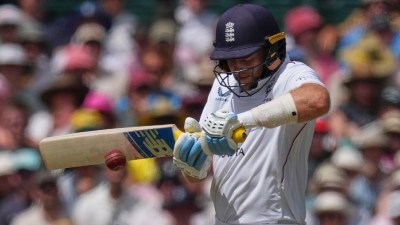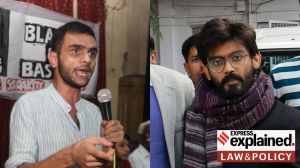Bomb Daddy singing: Islamabad
Top Pakistani scientist Abdul Qadeer Khan has admitted selling nuclear secrets to Iran and Libya, but authorities have yet to decide whether...

Top Pakistani scientist Abdul Qadeer Khan has admitted selling nuclear secrets to Iran and Libya, but authorities have yet to decide whether the national hero will go on trial, officials said on Monday.
Khan, who was sacked as adviser to the Prime Minister on Saturday, is the main suspect in a two-month investigation into allegations that individuals passed on Pakistan8217;s nuclear weapons secrets to countries including Libya, Iran and North Korea.
Seven suspects are still under investigation, but senior former military and intelligence officials 8212; who experts say must have known about Khan8217;s activities 8212; are not being questioned.
Putting Khan on trial is a sensitive issue in Pakistan, where he is revered as a national hero and the father of not only the country8217;s, but the Islamic world8217;s atomic bomb.
8216;8216;He Khan has admitted these things,8217;8217; said a military official on condition of anonymity, referring to allegations that Khan illegally leaked nuclear secrets to Iran, Libya and possibly North Korea. 8216;8216;It has yet to be decided whether he goes on trial or not.8217;8217;
Intelligence sources said evidence against Khan was strong enough to formally charge him, and included a statement from a key middleman in Dubai that could prove damning.
But Western diplomats and analysts say a trial could open a 8216;8216;Pandora8217;s box8217;8217; for Pakistan and, in particular, its powerful military, which could be implicated in the case.
The intelligence community believes Khan8217;s daughter may have gone abroad with material that could compromise the military.
English-language newspapers were muted in their reaction to Khan8217;s sacking, but called for an open trial.
8216;8216;There is a strong suspicion that Dr Khan could not have done anything wrong or even inappropriate without the connivance or neglect of those controlling the national programme at the time,8217;8217; The Nation said in editorial.
But some of the more widely read Urdu-language press was more critical, reflecting the feelings of many ordinary Pakistanis.
8216;8216;Whatever reason the government gives to justify its actions, the nation will consider it a step toward completion of the American agenda in this region,8217;8217; the Nawa-I-Waqt daily said.
President Pervez Musharraf, a key ally in the US-led 8216;8216;war on terror8217;8217;, is accused by the Urdu-language press of blindly following America8217;s agenda, having supported its war in Afghanistan and vowed to crack down on Islamic militancy.
The probe was launched more than two months ago after the UN nuclear watchdog, the International Atomic Energy Agency, found evidence pointing to Pakistani involvement in Iran8217;s nuclear programme. Designs used in Libya8217;s and North Korea8217;s nuclear programmes are also suspected of having come from Pakistan.
The Pakistani military said on Saturday that no illegal proliferation had occurred since the establishment of the National Command Authority, which controls Pakistan8217;s nuclear arsenal, in February 2000. It added that Pakistan would not curtail its nuclear weapons programme as a result of the investigation.
Officials said Musharraf would address the nation, probably early next week, once the investigation was complete.
Khan was a key architect of Pakistan8217;s atomic programme from the 1970s up to the first nuclear tests in 1998. The programme was developed in response to India8217;s.8211; Reuters
- 01
- 02
- 03
- 04
- 05































